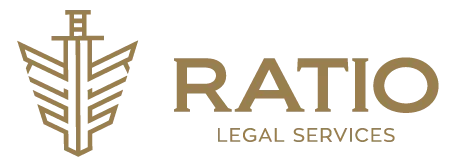The rise of remote work has fundamentally changed the way professionals approach their careers, with many individuals now seeking a flexible, location-independent lifestyle. Recognizing this shift, Greece has joined other countries around the world in offering incentives to attract digital nomads—remote workers who can perform their jobs from anywhere with a reliable internet connection. The Greek Digital Nomad Visa presents an exciting opportunity for those eager to combine productivity with the Mediterranean climate, historic cities, and celebrated hospitality that Greece provides.
Overview and Eligibility
Greece’s Digital Nomad Visa allows non-EU/EEA/Swiss nationals engaged in remote employment or freelance work to reside in the country for a fixed period while maintaining their professional duties. To qualify, applicants must demonstrate they have a stable income source from outside Greece and are able to perform their work online. The income thresholds and specific documentation requirements can vary and are subject to periodic review, so it is crucial to stay informed of any regulatory updates.
Application Process
Candidates typically begin the application process at the nearest Greek embassy or consulate in their home country (or country of legal residence). Key documents often include:
- Proof of Remote Work: A signed letter from an employer, freelance contract, or evidence of self-employment verifying that the individual can carry out their work duties independently of location.
- Financial Stability: Bank statements, pay slips, or tax returns that confirm the applicant meets the required monthly income level.
- Accommodation in Greece: Evidence of a residential address in Greece (e.g., a rental contract or confirmation of other long-term housing arrangements).
- Travel and Health Insurance: Coverage that is valid in Greece for the duration of the stay.
- Background and Identity Documents: A valid passport, police clearance certificate (in some instances), and recent photographs.
Upon submitting all relevant paperwork and paying the applicable fees, applicants undergo a review process by Greek authorities. If approved, they receive a visa that enables entry into Greece with permission to apply for a residence permit specifically tailored to digital nomads.
Duration and Renewals
The initial Digital Nomad Visa is often issued for a limited period, such as 12 months, with the possibility of renewing or converting it into a longer-term residence permit if the remote worker continues to meet the program’s criteria. Renewal applications typically require up-to-date proof of income and continued adherence to the conditions of remote work.
Benefits of the Greek Digital Nomad Visa
- Mediterranean Lifestyle: From picturesque islands and pristine beaches to lively urban centers like Athens and Thessaloniki, Greece offers a rich cultural and natural backdrop for balancing work and leisure.
- Schengen Access: Digital nomad residents in Greece generally enjoy the ability to travel within Europe’s Schengen Zone for short stays, facilitating regional exploration and business networking.
- Cultural Immersion: Living among Greece’s historical landmarks, engaging with local communities, and experiencing famed Greek hospitality allow digital nomads to cultivate a meaningful cultural connection.
- Supportive Tech Ecosystem: Athens in particular has become a hub for innovative startups, co-working spaces, and tech-friendly events, making it an appealing destination for remote professionals eager to network and collaborate.
Tax Considerations and Other Practicalities
Digital nomads should be aware of the potential tax implications of residing in Greece, particularly if their stay extends beyond six months or if they hold a residence permit that could impact tax residency status. Seeking advice from tax professionals can help clarify obligations around income tax, social security, and business operations. Additionally, ensuring reliable internet connectivity, such as setting up local mobile data plans or choosing accommodations with robust broadband, is essential for sustaining productivity.
Staying Compliant and Connected
Holders of the Digital Nomad Visa must continue to work remotely for clients or employers located outside Greece. Earning Greek-sourced income or operating a local enterprise without securing additional permits and fulfilling tax obligations may breach the terms of the visa. Moreover, digital nomads should keep track of any shifts in Greek immigration policy, as legislative updates can affect length-of-stay rules or renewal procedures.
In conclusion, the Greek Digital Nomad Visa stands out as an enticing route for remote workers craving an immersive cultural experience and a scenic environment while continuing their professional projects. By remaining informed of the visa requirements, maintaining compliance with local regulations, and embracing the opportunities for travel and networking, digital nomads can successfully weave their professional pursuits into the vibrant tapestry of Greek life.




